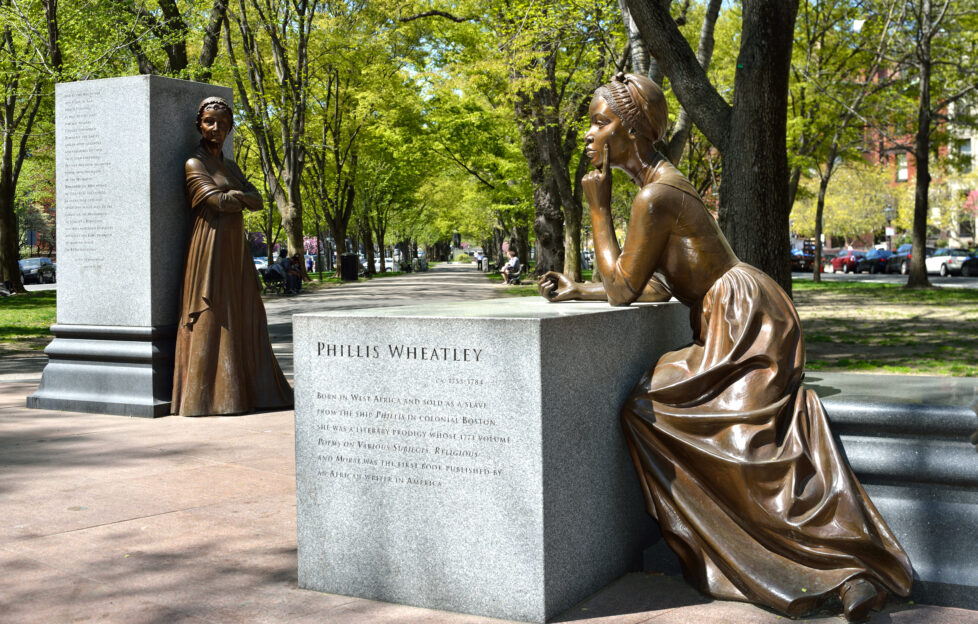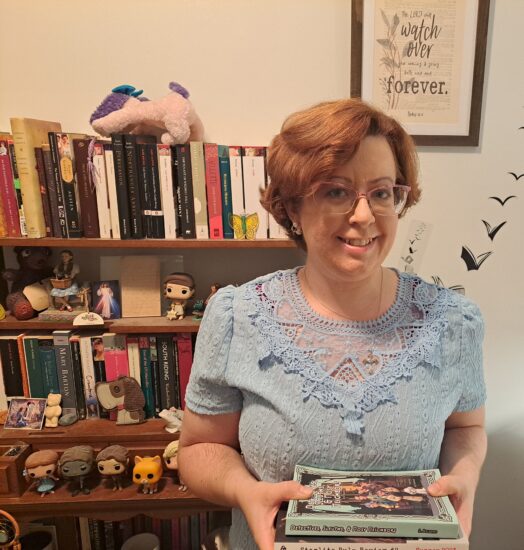 Shutterstock / Jorge Salcedo©
Shutterstock / Jorge Salcedo©Today is Anti Slavery Day, which aims to raise awareness of human trafficking and modern slavery.
To mark the occasion, we thought we’d share the story of Phillis Wheatley, a remarkable woman who endured the horrors of slavery in the USA.
This article was written for us by Dianne Boardman, and originally published in July 2021.
The story of Phillis Wheatley is a fascinating one.
Born in West Africa around 1753, she was sold by her village chief to a slave trader at seven or eight years old and taken to America on an overcrowded ship.
She survived to become a poet and the first African American to publish a book in America, contributing to the founding of African American literature and inspiring writers like Alice Walker.
What is even more extraordinary is that she was still a slave at the time she began writing and publishing her poems.
When Phillis disembarked the slaving ship, John Wheatley purchased her as a maid for his wife Susanna.
The couple named her Phillis, after the ship, and she took their surname. Within the year she had learned English so well that they decided to educate her with their own children, Mary and Nathaniel.
Astonished at the standard of her compositions
Phillis studied Greek and Latin and read Homer and Virgil. She particularly admired the poetry of Alexander Pope and John Milton and it inspired her to begin writing poems.
Phillis knew her bible well and her poems were often religious, with titles like “Virtue” or “Imagination”.
She wrote many elegies to people she admired. But in her most famous poem – “On Being Brought From Africa To America” – she explored the origins of her stolen childhood.
Astonished at the standard of her compositions, John Wheatley sent some of her poems to a newspaper. Her first poem was published when Phillis was around fourteen years old.
A few years later, authorities questioned Phillis thoroughly in court, to prove she had written the work. Even after a favourable verdict, American publishers still rejected her. So Nathaniel took her to London.
The Countess of Huntingdon sponsored publication of a selection of Phillis’s poems in a book entitled “Poems On Various Subjects, Religious And Moral”.
So, at twenty years old, Phillis became the first African American to publish a book.
Sadly, Phillis’s story did not end well.
It brought her fame, and publication in America quickly followed.
George Washington invited her to visit him, which she did in 1776. She exchanged letters with eminent men of the day, including King George III.
Sadly, Phillis’s story did not end well.
The American Revolutionary War began, and the Wheatleys, suffering from ill health, gave Phillis her freedom. But after both they and the countess died, she lost her sponsors.
Although she had written a second book of poetry, no one would publish it.
Some poems were published in pamphlets and newspapers, but by then she had married John Peters, a grocer. They had two children who died in childhood. After John was imprisoned for debt, Phillis took a job as a scullery maid.
By the time their third child was born in 1784, Phillis was in ill health.
She died in December 1784 aged thirty-one, with the infant quickly following her to the grave.
Less than a decade earlier, “The London Magazine” had published some of her work, saying:
“. . . we cannot suppress our admiration for talents so vigorous and lively.”
The legacy of Phillis Wheatley
A commemorative blue plaque marks the London site where A. Bell Booksellers published Phillis’s first book in September 1773 (8 Aldgate, now the location of the Dorsett City Hotel).
Phillis now has several schools and university halls in the United States named after her. Also named after her is a branch of the Richland County Library in Columbia, South Carolina, which offered the first library services to black citizens.
In the 1830s, abolitionists reprinted Phillis’s work to further the cause.
Phillis was the subject of a play by British-Nigerian writer Ade Solanke, entitled “Phillis In London”, which premiered in June 2018.
For more fantastic features from “The People’s Friend”, click here.




